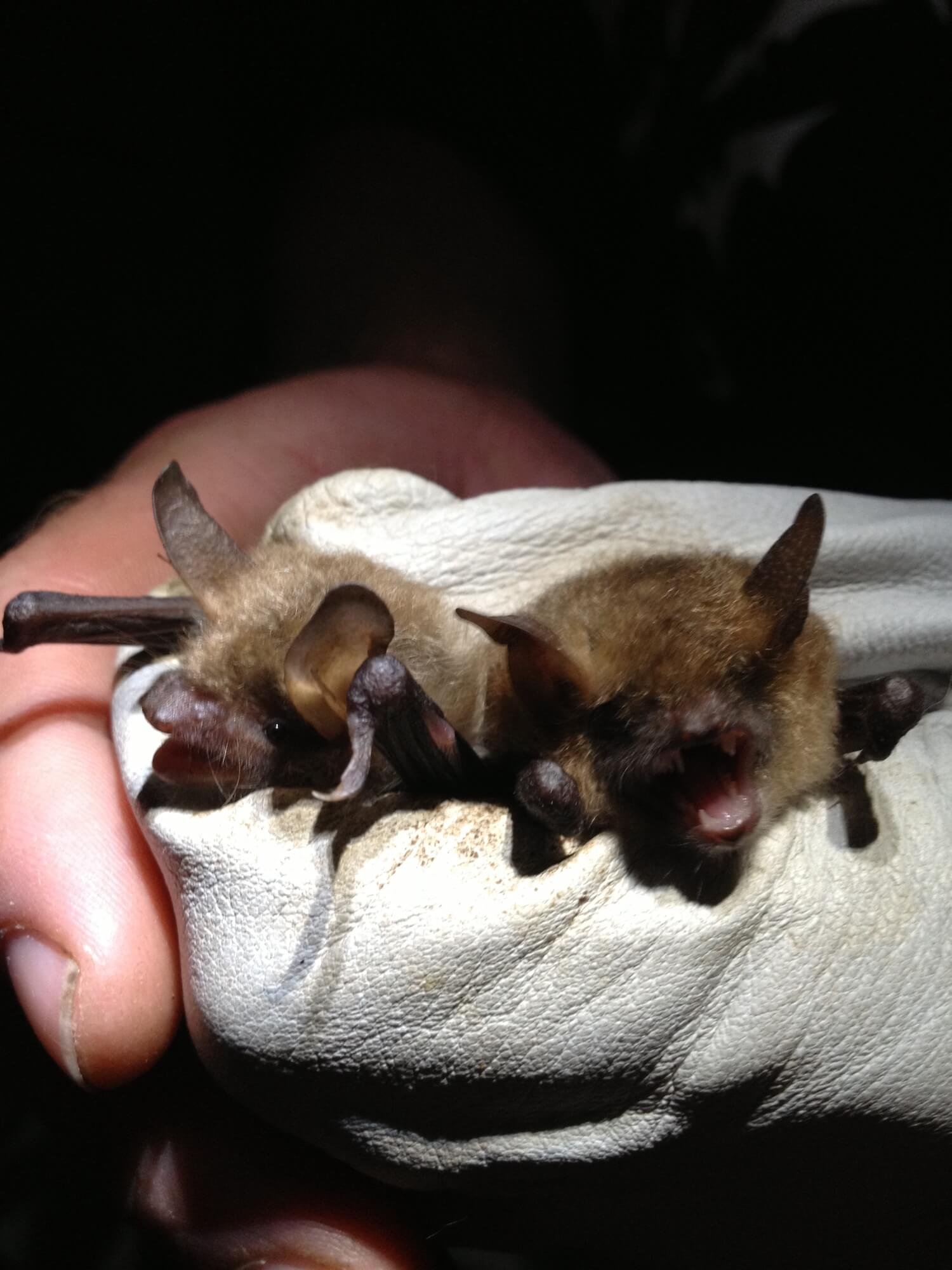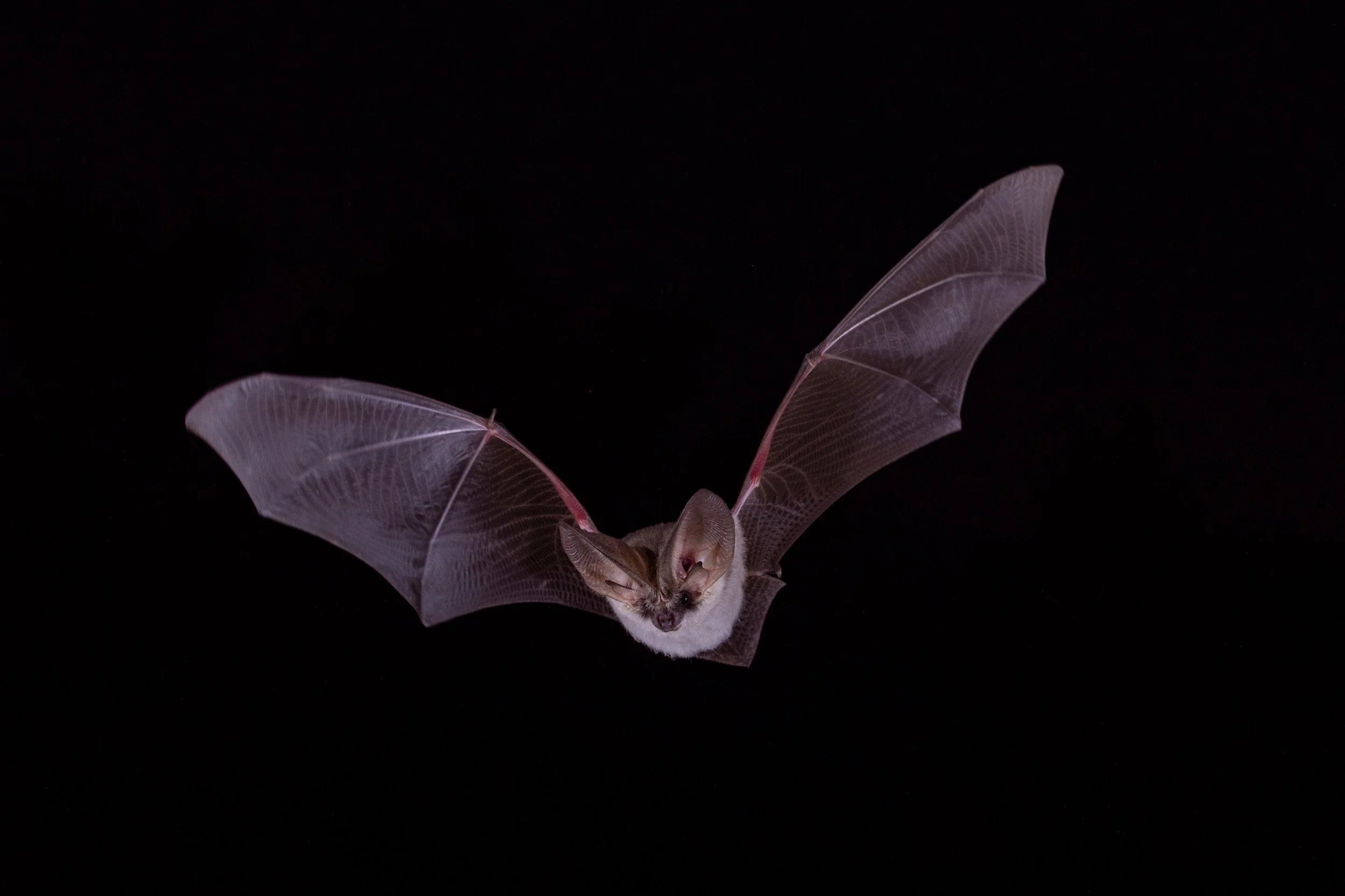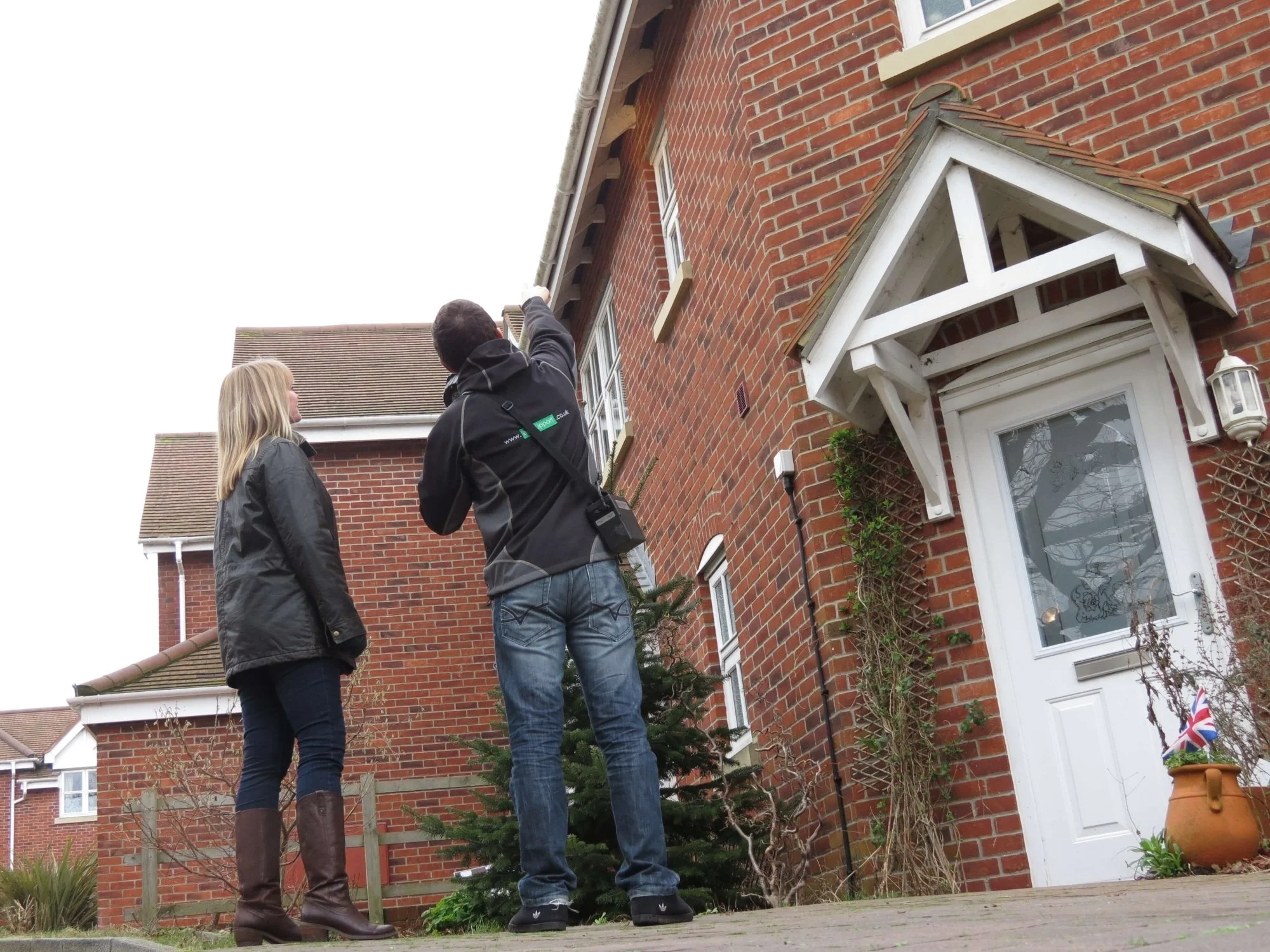
Bat Surveys
Bats & The Law
There are 17 native species of bat in the UK, and all bats and their resting places are legally protected. Protection is provided under Regulation 41 of the Conservation of Habitats and Species Regulations 2017 and Section 9 of the Wildlife and Countryside Act 1981. It is an offence to intentionally kill, injure or handle a bat; to possess a bat, whether alive or dead; to disturb a roosting bat; or to sell or offer a bat for sale without an appropriate licence. It is also an offence to damage, destroy, or obstruct access to any place used by bats for shelter, regardless of whether bats are present at the time.
Given the significance of bats within planning policy and wildlife legislation, it is important to assess a site’s potential to support bats as early as possible. Surveys are often required where suitable habitat or structures are present, even if no bats have been previously recorded, to ensure compliance and avoid delays during the planning process.
When is a Bat Survey Needed?
A bat survey is typically required where proposed works could affect buildings, trees, or habitats that may be used by bats for roosting, commuting, or foraging. This commonly includes development involving demolition, conversion, roof works, tree removal, vegetation clearance, or new lighting, particularly where older structures or mature trees are present.
Surveys may be requested as part of a planning application even if bats have not previously been recorded on site. This is because bats and their roosts are legally protected, and suitable habitat alone can be sufficient to trigger survey requirements. Early assessment helps identify potential constraints, determine whether further survey work is needed, and reduce the risk of planning delays later in the process.
An initial bat survey is undertaken during the Phase I survey and determines if there are any potential roosting features on your site. Bats commonly roost in buildings and trees. Any buildings or trees that may be impacted by works are assessed internally and externally for evidence of bats and potential roosting features (PRFs).
Initial assessment
Typical features on buildings may include:
broken or loose roofing tiles
hanging tiles
gaps in the soffit or fascia
weatherboarding
other access into a loft space
Both buildings and trees are classified as either having negligible, low, moderate or high potential to support roosting bats. If they are considered negligible, no further survey effort will be required. If there is low, moderate or high potential either one, two or three Phase II Emergence/Re-entry surveys will be required respectively. Similarly if signs of bats, or bats themselves, are found this will result in the building/tree being classified as a known roost, meaning three Phase II surveys will be required.
Do all sites require bat surveys?
Not all sites require detailed or seasonal bat surveys. The level of survey required depends on the site, the proposed works, and the results of an initial assessment. In many cases, a preliminary survey is sufficient to inform planning, with further surveys only needed where evidence of bat use or higher risk is identified.
Phase II emergence / re-entry surveys
As outlined above, the level of survey effort will depend on the particular site. However to satisfy the Local Planning Authority we must work within the recommendations of the Bat Conservation Trust Good Practice Survey Guidelines 4th Edition (2023).
Phase II surveys must be undertaken during the active survey season (May - September) and spaced out by at least two weeks. If a structure has high potential or a confirmed roost, two of the three surveys must be carried out by the end of August.
It is best to consider the timing during planning and contact us as early as possible to avoid any delays.
Phase II bat surveys are designed to assess the presence, type, and level of bat activity or roost use where potential impacts have been identified. Survey scope is proportionate to the quality of habitat, structures, and surrounding landscape, and is informed by the findings of the initial Phase I (Preliminary Ecological Appraisal). The results allow us to assess likely impacts and, where necessary, develop appropriate mitigation and compensation measures to support planning and licensing requirements.
Phase II activity surveys
After carrying out an appropriate bat survey or assessment, if it is established that a bat roost is present within a building or tree a Natural England European Protected Species Licence (EPSL) will be required before the roost can be lawfully destroyed or in some cases disturbed. Licences are issued by the statutory authority, and our role is to provide the ecological surveys, mitigation design and supporting information required for the application.
Confirmed roost
We always liaise with the clients at this stage to ensure that the mitigation requirements of the licence will be achievable, ensuring they are fully aware of all aspects as the project progresses.

Our experience with Bats
We have a number of licensed and experienced bat workers who have gained considerable expertise in survey, assessment and evaluation of bat roosts and planning and implementing a scheme of activity surveys. Ecosupport has obtained numerous European Protected Species licences over recent seasons and pride ourselves on delivering these to budget.
FAQ’s
-
Yes. Even if no bats have been recorded, surveys may be required where buildings, trees, or habitats could support roosting, commuting, or foraging bats. Early assessment ensures compliance with UK wildlife legislation and planning policy.
-
Bat surveys should be undertaken as early as possible, ideally before submitting a planning application. Conducting surveys in the correct season and at the right stage of development helps avoid delays and allows mitigation measures to be planned into the project from the outset.
-
If bats or bat roosts are identified, mitigation may be required, and a European Protected Species Licence (EPSL) may be needed from Natural England before works can proceed. Our reports support planning submissions and provide the necessary information to guide licence applications and mitigation measures.
Have more questions?





